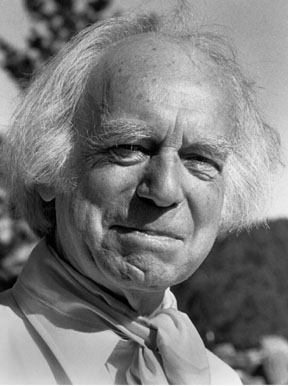
You know moments in your daily life when you are completely absent as a person. You cannot think this absence, you are it. If you consider yourself to be a person, then you make an object of yourself, and as such you are connected as an object with objects. Then you occupy a part of yourself, and a part can only be a part. By seeing only one part nothing else can arise except reactions, and reactions can only create conflict.
But if you are free of yourself, free of the idea of being a person, in this absence of yourself, you are actually presence, all-encompassing presence. Then you see the surroundings without reference, out of your totality, out of your all encompassing oneness. There is no reaction anymore, there is only action.
There is no entity in the cosmos. There is only functioning. There is not anyone who functions.
How is it possible to free yourself of the past by only observing?
See how observing in the right way changes the patterns in your body-thought-feeling. See what effect it has in you to be the observing. When you think of the past, it is the present, a thought in the now.
Thus, in reality there is no psychological past. There is a chronological past, but this is only a very small percentage of what we call ‘the past’. Ninety percent of the so-called past is therefore fictive. The psychological past is there only to preserve the ‘I concept’, and the ‘I-concept’ is built up exclusively from memory.
Most of our so called memory is psychological. If you really see that the ‘I’ as such has no existence, that it is a thought, then the psychological past is given up. Enormous quantities of energy and tension are invested in thinking about and maintaining a psychological past. If we see that it is only daydreams we give it up, and then suddenly there is a deep letting go, a deep relaxation, that brings us to a state of openness.
Free of the ‘I-idea’ and psychological memory we are open for intelligence, open for pure functional memory, a cosmic memory, a universal memory. We can only know what we are not; we can never know what we are, because we are the knowing. See at the moment itself how understanding this affects you; that you can never know it, you cannot represent it, you can only be it.
Then there is a natural, unavoidable giving up. It is a transformation of energy. Something happens in your body, in your brain cells, and there comes a moment that you feel that you are nothing, and you feel yourself in this nothing. In this nothing there is fullness.
Would you please tell us about that which is called satsang?
Tell me first what you mean by satsang. Commonly the word means that you are in good company, in the vicinity of someone who is blessed.
But that depends totally on the point of view that you take. From the standpoint of the thinking, of the I, you are never in good company. You are continuously in: I want, I must, I shall. Out of that you can never have or be good company, because good company begins with yourself.
A teacher does not see himself as a teacher. He or she gives without asking anything in return. He considers himself to be nothing, and in that way he sees to it that the nothing in you wakes up when he says: you are nothingness. That is real togetherness. That is perfect company. I listen to your question and I listen to the answer. The answer comes out of silence.
Jean Klein (1912-1998) was a French author, spiritual teacher and philosopher. Excerpted from ‘Open to the Unknown’ talks in Delphi, Greece in 1990.
Jean Klein






